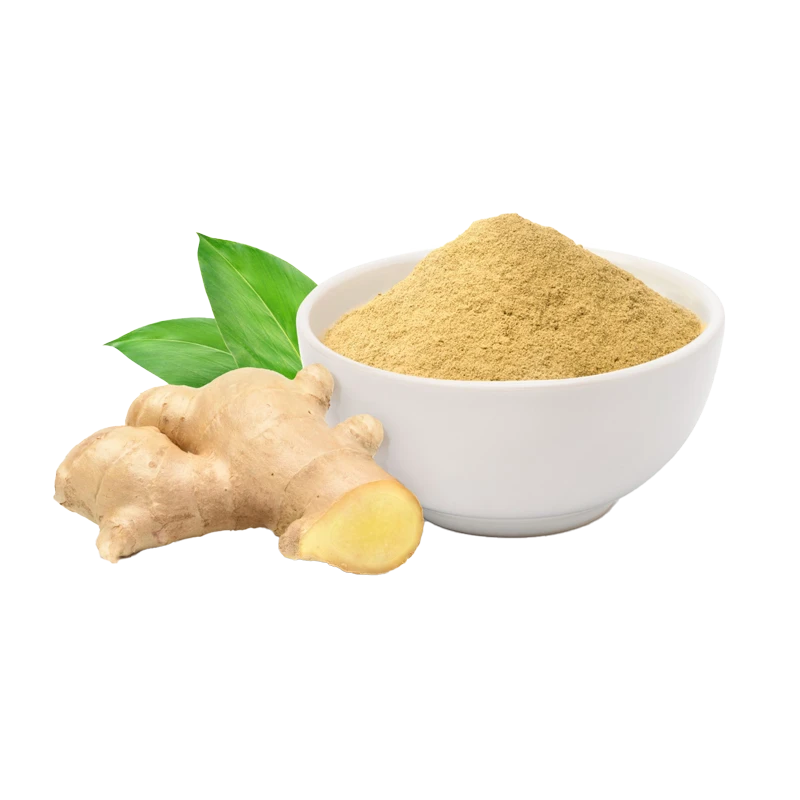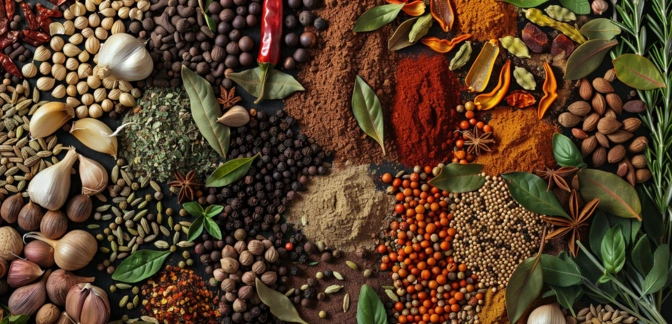Ginger — Nutrients, Health Benefits, And Shopping Tips

Written by Listonic Team
Last update on September 4, 2024
Ginger nutrients
Nutrition facts
Amount per 100 g
Calories
🔥 80 kcal
| Nutrition per: 100 g | Value | % Daily Value* |
|---|---|---|
| Carbs | 18 g | 6.55% |
| Fiber | 2 g | 7.14% |
| Sugars | 2 g | 4% |
| Glycemic Index | 15 | - |
| Protein | 2 g | 4% |
| Sodium | 13 mg | 0.57% |
| Total Fat | 1 g | 1.28% |
*The % of Daily Value (DV) tells you how much a nutrient in a serving of food contributes to a daily diet. 2,000 calories a day is used for general nutrition advice.
15
🟢 Low Glycemic Index
1 g
🥕 Low Fat Content
Ginger facts & tips
Health benefits
- Contains powerful antioxidants such as gingerol, which help protect the body from free radicals and reduce inflammation.
- Supports digestive health by promoting the production of digestive enzymes and reducing symptoms of indigestion and nausea.
- Has anti-inflammatory properties, which can help reduce pain and improve conditions like arthritis.
- May support immune function due to its antimicrobial properties, helping to fight off infections.
- Can help regulate blood sugar levels, making it beneficial for individuals with diabetes or insulin resistance.
Health risks
- Potential for digestive irritation such as heartburn or stomach discomfort when consumed in large quantities, particularly in raw or concentrated forms.
- Risk of allergic reactions in some individuals, particularly those allergic to ginger or related plants, causing symptoms like itching, swelling, or difficulty breathing.
- Potential for interactions with medications particularly blood thinners or medications affecting blood pressure, as ginger may have mild anticoagulant or hypotensive effects.
- Potential for overconsumption leading to excessive intake of certain compounds that may cause adverse health effects, particularly when using ginger supplements or extracts.
How to choose ginger
Fresh ginger should have a smooth, taut skin with a sharp, spicy aroma. The flesh should be firm and fibrous, offering a pungent flavor when cut or grated.
Shriveled or soft ginger, which can indicate age or moisture loss, should be avoided. Ginger with mold or an unusually mild scent should also be avoided, as it won't deliver the desired culinary impact.

How to store ginger
Fresh ginger should be stored in the refrigerator, preferably in a plastic bag. Refrigeration maintains its freshness and flavor for up to three weeks. Keeping it dry helps extend its shelf life.
Moisture can cause ginger to mold. Avoid washing it before storage to prevent excess moisture. Always check for any signs of spoilage, such as soft spots or mold, before using.
✅ Extra Tip
How long does it last?
Ginger can last for 3-4 weeks in the refrigerator. For longer storage, ginger can be frozen, lasting up to 6 months. Peel and slice it before freezing for convenience.
What to do with leftovers?
Leftover ginger, whether fresh or ground, can be used in a variety of culinary and non-culinary ways. In the kitchen, ginger adds a warm, spicy flavor to dishes like soups, stir-fries, desserts, and beverages. It’s commonly used in both sweet and savory recipes, from gingerbread cookies to Asian-inspired stir-fries and teas.
Beyond cooking, ginger has numerous health and beauty uses. It can be brewed into a tea that is traditionally used to help relieve nausea, improve digestion, and soothe colds. Fresh ginger can also be used in DIY beauty treatments, such as making a ginger-infused oil for massages or mixing it into a face mask to help brighten and rejuvenate the skin. Additionally, ginger can be used in natural remedies to reduce inflammation or as a warming treatment for sore muscles. In crafting, ginger can be used to make homemade candles or soaps, adding a warm, spicy fragrance.
👨⚕️️ Medical disclaimer
Discover products from other categories
Listonic Team
Fact-checked
Our editorial team checked this article to make sure it was accurate at the time of publishing it.
Get the top-rated shopping list app

ginger
1 piece







